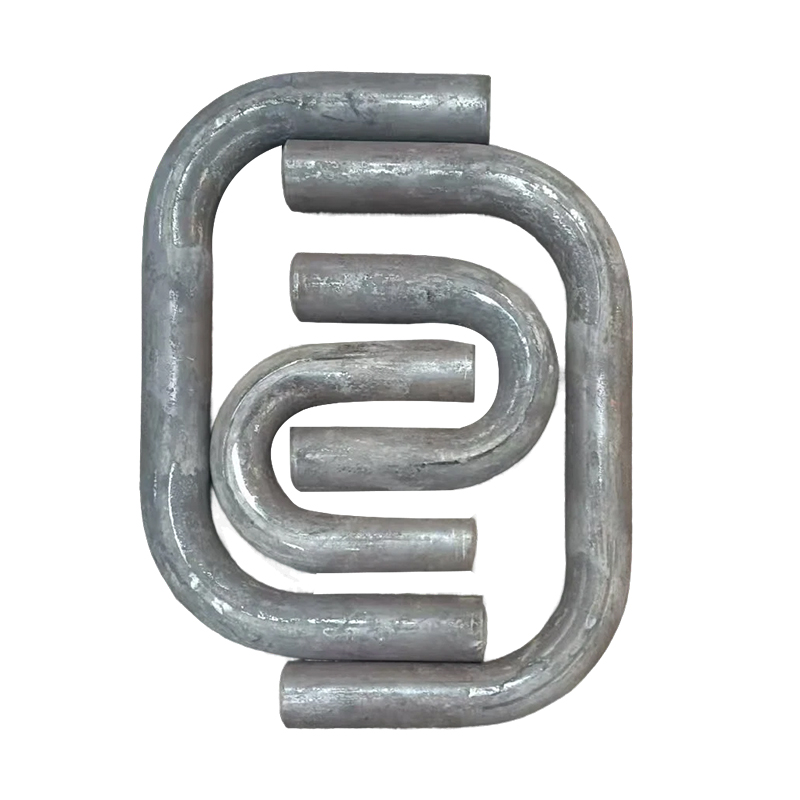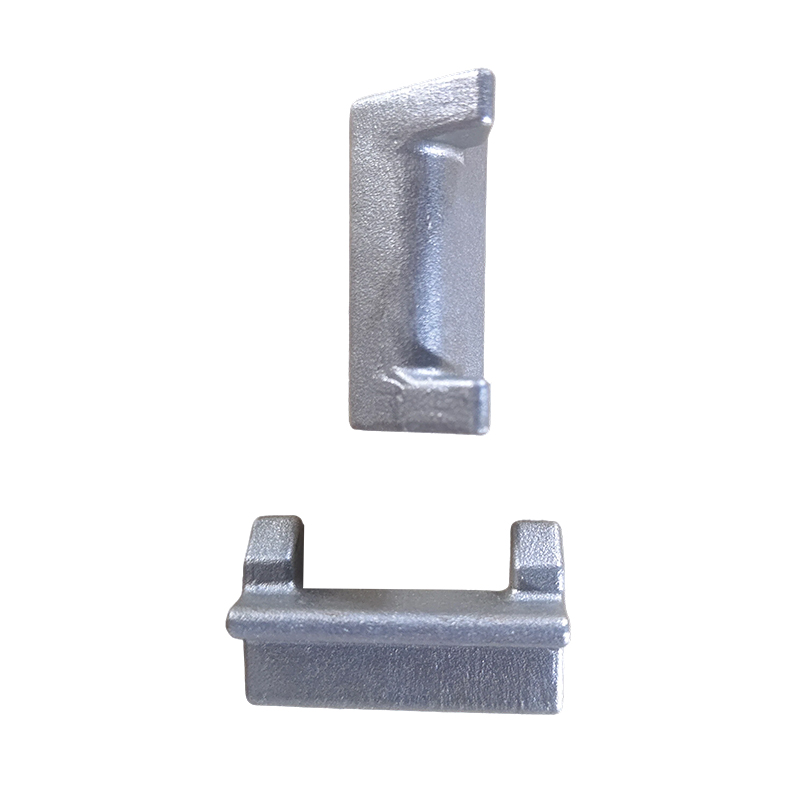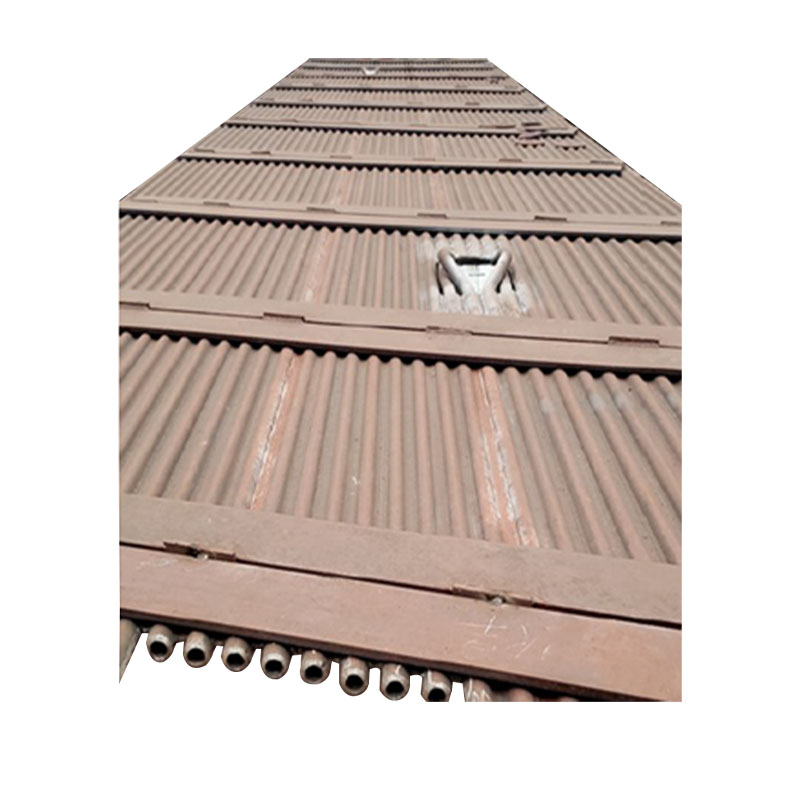Are boiler accessories treated with corrosion protection to withstand the challenges of frequent startups and shutdowns and fluctuating water quality?
Release Time : 2025-09-15
During the long-term operation of a boiler system, accessories must withstand not only the physical stress of high temperatures and high pressures, but also chemical attack from water, steam, and combustion byproducts. Especially under the complex operating conditions of frequent startups and shutdowns and fluctuating water quality, metal components are extremely susceptible to corrosion, oxidation, and scaling. This corrosion doesn't manifest instantly, but rather occurs silently with each heating and cooling cycle, gradually weakening the structural strength and sealing performance of the accessories, ultimately leading to leaks, failures, and even safety accidents. Therefore, whether boiler accessories are effectively treated with corrosion protection is directly related to the reliability, lifespan, and operational safety of the entire system.
During startup and shutdown, the internal temperature and pressure of the boiler fluctuate dramatically, causing the metal material to repeatedly expand and contract. This thermal stress cycle not only accelerates fatigue but also creates a breeding ground for electrochemical corrosion in microcracks and weld joints. When the boiler is not in operation, residual moisture condenses on the pipe walls. If not promptly removed, it oxidizes the metal, forming a rust layer. During restart, high-temperature steam washes away the loosened rust, causing it to flake off and flow into other parts of the system. This can clog sensors or affect control accuracy. Frequent start-stop usage, such as in commercial heating or intermittent production, requires this process to be repeated, placing even higher demands on the durability of accessories.
Fluctuating water quality presents another significant challenge. Water hardness, pH, and chloride ion content vary from region to region, and even after softening, impurities and dissolved gases may still be present. When water evaporates at high temperatures, minerals precipitate and adhere to metal surfaces, forming scale. This not only reduces heat transfer efficiency but also creates a localized corrosive environment between the scale layer and the metal, leading to pitting and crevice corrosion. Certain ions also directly participate in electrochemical reactions, accelerating metal dissolution. Frequent water replenishment or poorly sealed systems allow for the continuous influx of oxygen, further exacerbating the oxidation process, particularly on carbon steel accessories.
To address these challenges, high-quality boiler accessories typically utilize multiple corrosion protection treatments. Surface treatment is the first line of defense. Through passivation, galvanizing, nickel plating, or spraying high-temperature resistant coatings, a dense protective layer is formed, isolating the metal from direct contact with corrosive media. These coatings are not only resistant to high temperatures but also resist corrosion from condensation and weakly acidic environments, maintaining stable adhesion during thermal cycles. For critical pressure-bearing components, the choice of material itself is also crucial. Stainless steel, thanks to its natural chromium oxide film, offers excellent corrosion resistance and is commonly used in water level gauges, connectors, and sensor interfaces. Copper alloys, due to their excellent thermal conductivity and corrosion resistance, are widely used in valves and heat exchange components.
In addition, optimizing design details can slow the corrosion process. Reduce dead corners and stagnant water areas to prevent liquid accumulation; use full-thickness welds instead of threaded connections to prevent crevice corrosion; and strategically arrange drains to ensure that residual water can be completely drained after shutdown. While these measures may not be noticeable, they significantly enhance the system's corrosion resistance over time.
The significance of anti-corrosion treatment lies not only in extending component life but also in ensuring system stability and safety. A corroded safety valve may not trip properly in response to overpressure; a rusted water level gauge may misreport the liquid level, leading to the risk of dry-boiling; a clogged pressure sensor may cause the control system to malfunction. These hidden dangers are often unnoticed during routine inspections, but can lead to serious consequences at critical moments.
Therefore, choosing boiler accessories that have undergone professional corrosion protection is an investment in the long-term health of the system. They ensure reliable response despite complex water conditions and operating conditions, reducing unplanned downtime and unexpected failures. From minute bolts to core control components, the corrosion resistance of every component is the cornerstone of the robust operation of the entire boiler system. They silently withstand the ravages of time and the environment, ensuring that every ignition and every heat supply proceeds smoothly and safely and efficiently.
During startup and shutdown, the internal temperature and pressure of the boiler fluctuate dramatically, causing the metal material to repeatedly expand and contract. This thermal stress cycle not only accelerates fatigue but also creates a breeding ground for electrochemical corrosion in microcracks and weld joints. When the boiler is not in operation, residual moisture condenses on the pipe walls. If not promptly removed, it oxidizes the metal, forming a rust layer. During restart, high-temperature steam washes away the loosened rust, causing it to flake off and flow into other parts of the system. This can clog sensors or affect control accuracy. Frequent start-stop usage, such as in commercial heating or intermittent production, requires this process to be repeated, placing even higher demands on the durability of accessories.
Fluctuating water quality presents another significant challenge. Water hardness, pH, and chloride ion content vary from region to region, and even after softening, impurities and dissolved gases may still be present. When water evaporates at high temperatures, minerals precipitate and adhere to metal surfaces, forming scale. This not only reduces heat transfer efficiency but also creates a localized corrosive environment between the scale layer and the metal, leading to pitting and crevice corrosion. Certain ions also directly participate in electrochemical reactions, accelerating metal dissolution. Frequent water replenishment or poorly sealed systems allow for the continuous influx of oxygen, further exacerbating the oxidation process, particularly on carbon steel accessories.
To address these challenges, high-quality boiler accessories typically utilize multiple corrosion protection treatments. Surface treatment is the first line of defense. Through passivation, galvanizing, nickel plating, or spraying high-temperature resistant coatings, a dense protective layer is formed, isolating the metal from direct contact with corrosive media. These coatings are not only resistant to high temperatures but also resist corrosion from condensation and weakly acidic environments, maintaining stable adhesion during thermal cycles. For critical pressure-bearing components, the choice of material itself is also crucial. Stainless steel, thanks to its natural chromium oxide film, offers excellent corrosion resistance and is commonly used in water level gauges, connectors, and sensor interfaces. Copper alloys, due to their excellent thermal conductivity and corrosion resistance, are widely used in valves and heat exchange components.
In addition, optimizing design details can slow the corrosion process. Reduce dead corners and stagnant water areas to prevent liquid accumulation; use full-thickness welds instead of threaded connections to prevent crevice corrosion; and strategically arrange drains to ensure that residual water can be completely drained after shutdown. While these measures may not be noticeable, they significantly enhance the system's corrosion resistance over time.
The significance of anti-corrosion treatment lies not only in extending component life but also in ensuring system stability and safety. A corroded safety valve may not trip properly in response to overpressure; a rusted water level gauge may misreport the liquid level, leading to the risk of dry-boiling; a clogged pressure sensor may cause the control system to malfunction. These hidden dangers are often unnoticed during routine inspections, but can lead to serious consequences at critical moments.
Therefore, choosing boiler accessories that have undergone professional corrosion protection is an investment in the long-term health of the system. They ensure reliable response despite complex water conditions and operating conditions, reducing unplanned downtime and unexpected failures. From minute bolts to core control components, the corrosion resistance of every component is the cornerstone of the robust operation of the entire boiler system. They silently withstand the ravages of time and the environment, ensuring that every ignition and every heat supply proceeds smoothly and safely and efficiently.







